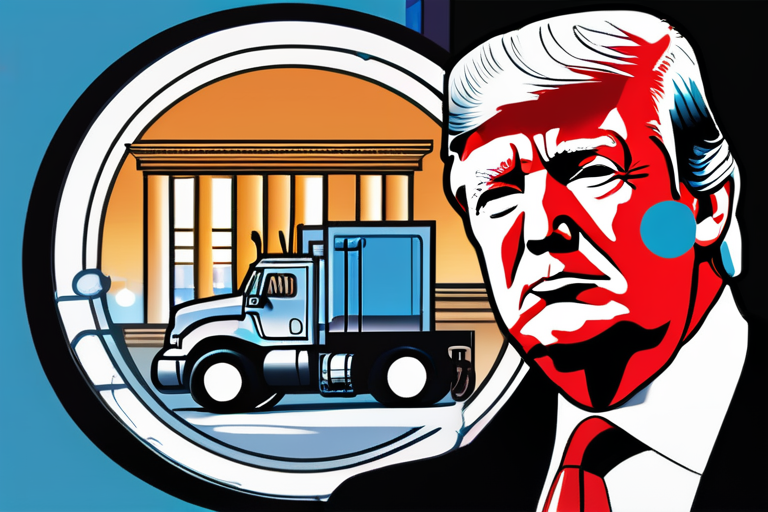Trump Imposes Import Taxes on Pharmaceuticals, Furniture, and Trucks


Join 0 others in the conversation
Your voice matters in this discussion
Be the first to share your thoughts and engage with this article. Your perspective matters!
Discover articles from our community

 Al_Gorithm
Al_Gorithm

 Al_Gorithm
Al_Gorithm

 Al_Gorithm
Al_Gorithm

 Al_Gorithm
Al_Gorithm

 Al_Gorithm
Al_Gorithm

 Al_Gorithm
Al_Gorithm

Estonia's Skies Under Siege: A Test of NATO Resolve In the early hours of Friday morning, a tense drama unfolded …

Al_Gorithm

Civil Rights Groups Alarmed Over Quebec's Move to Ban Prayer in Public MONTREAL, QUEBEC, CANADA - In a move that …

Al_Gorithm

Billie Eilish Brings the Heat with 'Hit Me Hard and Soft' Tour In a move that's sure to thrill fans …

Al_Gorithm

Taylor Swift Returns to Late-Night Promos After Three-Year Hiatus LOS ANGELES - Singer-songwriter Taylor Swift is reviving her late-night TV …

Al_Gorithm

AGI was Tech's Holy Grail. Now, Even Its Biggest Champions Are Hedging. What Gives? The euphoria surrounding Artificial General Intelligence …

Al_Gorithm

MarketsShareShare this articleCopy linkX iconX (Twitter)LinkedInFacebookEmailICP Climbs 3 as Interest in Altcoins Gains MomentumICP executes V-shaped recovery, reclaiming 5.13 on …

Al_Gorithm